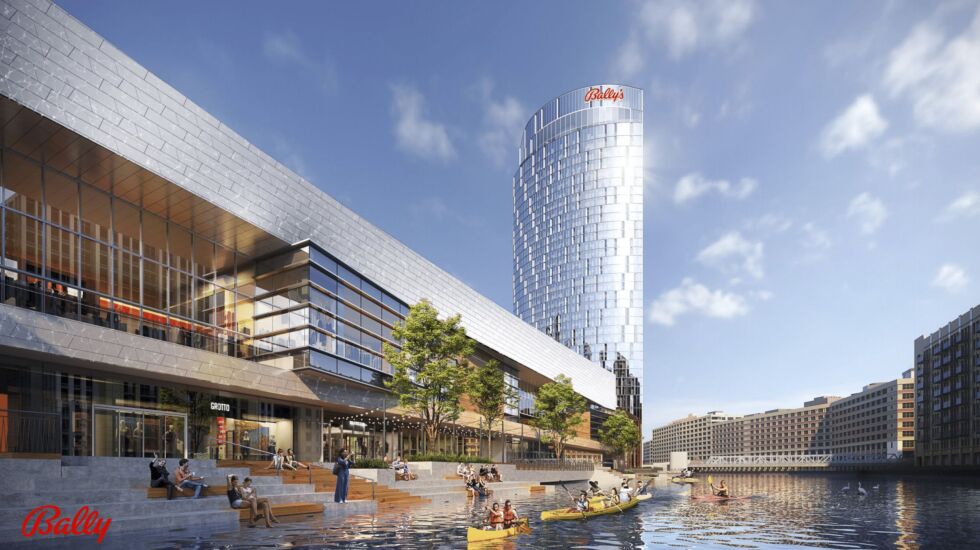
Chicago should feel like a winner now that the City Council has granted zoning approval for Bally’s to build a $1.7 billion gaming complex in the River West neighborhood.
After all, Chicago’s projected $200 million a year take from casino gambling revenues is supposed to help ease the city’s mounting pension obligations, Mayor Lori Lightfoot and casino backers have attested.
And the jobs created from building and operating the facilities proposed for the Chicago Tribune’s Freedom Center at Chicago Avenue and Halsted Street will employ 6,000 Chicagoans and boost the local economy, we’ve all been told.
But rather than exhaling a sigh of relief over the zoning approval win in City Council last week — the final local legislative hurdle for the project — this editorial board, and no doubt a measure of the public, still feels a bit uneasy over the whole thing.
And Chicago has to get this right.
So we encourage the Illinois Gaming Board — who’ll have the final word on the casino — to ask some serious questions about the deal when the body meets next year to take up the matter for approval.
An ‘inexperienced team’
Neither Bally’s bid, nor the pathway that led to their selection has done much to instill public confidence that Chicago taxpayers will get all the benefits promised by the casino.
Most of the 14 U.S. casinos Bally’s owns were built under previous owners, then acquired by the gaming giant. And the company has never built a casino in a market as large as Chicago, as alderpersons have noted.
“We’re hitching our wagon to an inexperienced team,” casino opponent Ald. Brian Hopkins (2nd), whose ward is next to the proposed casino site, said at last week’s Zoning Committee meeting. “That could come back to haunt us.”
And when Bally’s was one of three casino developer finalists, Lightfoot — virtually out of the blue — demanded that each of the trio promise to make an upfront payment of $40 million, plus an extra $2 million a year if selected as the winner.
Guess which finalist was the first to agree? Bally’s.
Shortly after, Lightfoot picked Bally’s as the winner, bypassing the special City Council committee — which she had created — that was supposed to consider “all things” casino, including selection.
Lightfoot sped through the selection of Bally’s, and over strenuous objections of nearby residents who were concerned the project would worsen the already substantial traffic issues in the area.
And the $200 million yearly windfall the casino is supposed to provide the city? Those revenue projections are from Bally’s itself, with the Lightfoot administration making no effort to independently verify the company’s numbers.
“It will be a decision that the people who made it look back years from now with deep regret,” Hopkins (2nd) said last May. “And we’ll be on the hook for it.”
Hopkins is right. There seems too much murkiness around Bally’s bid for the public to know what it’s truly getting.
Just as we wrote last May: “If Chicago history has shown us anything at all, it’s that when a city deal pitched as a good thing instead results in unanswered queries and a general queasiness among elected officials and the populace — as has been the case during the run-up to Bally’s likely selection — it’s everyday Chicagoans who end up suckered.”
The casino’s next stop is to seek a state license from the Illinois Gaming Board. As the final link in the approval process, the agency must question all aspects of this bid, and not be afraid to deny the license if any of it starts to smell fishy.
Something like this is too important to be left to chance.
The Sun-Times welcomes letters to the editor and op-eds. See our guidelines.







